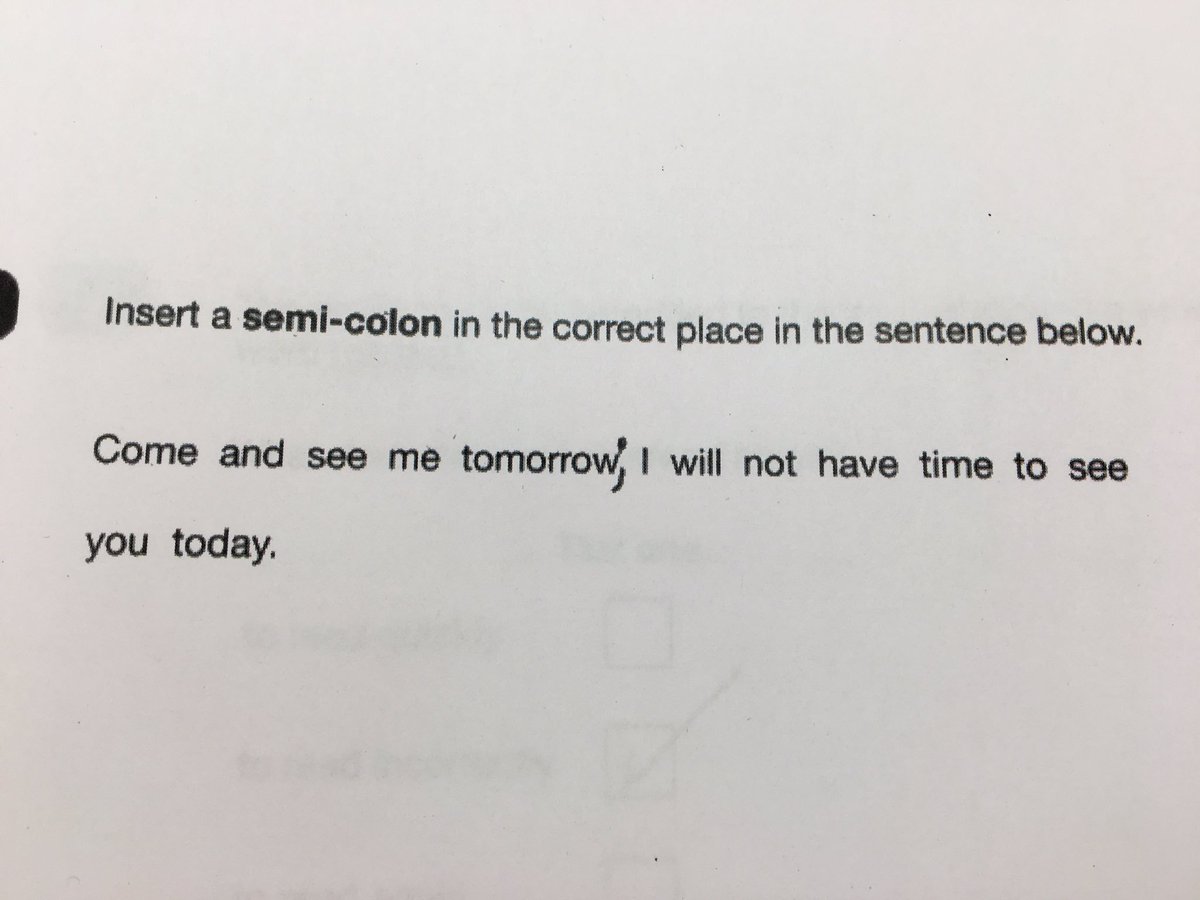Considering the interest in semocolons evidenced here, I am disappointed that no-one else shares my outrage at what is being inflicted on primary school children. Here's the link I posted earlier.

'The child clearly knows where a semi colon goes and what one is but has put the dot too high' and is therefore marked wrong!

'The child clearly knows where a semi colon goes and what one is but has put the dot too high' and is therefore marked wrong!





Comment